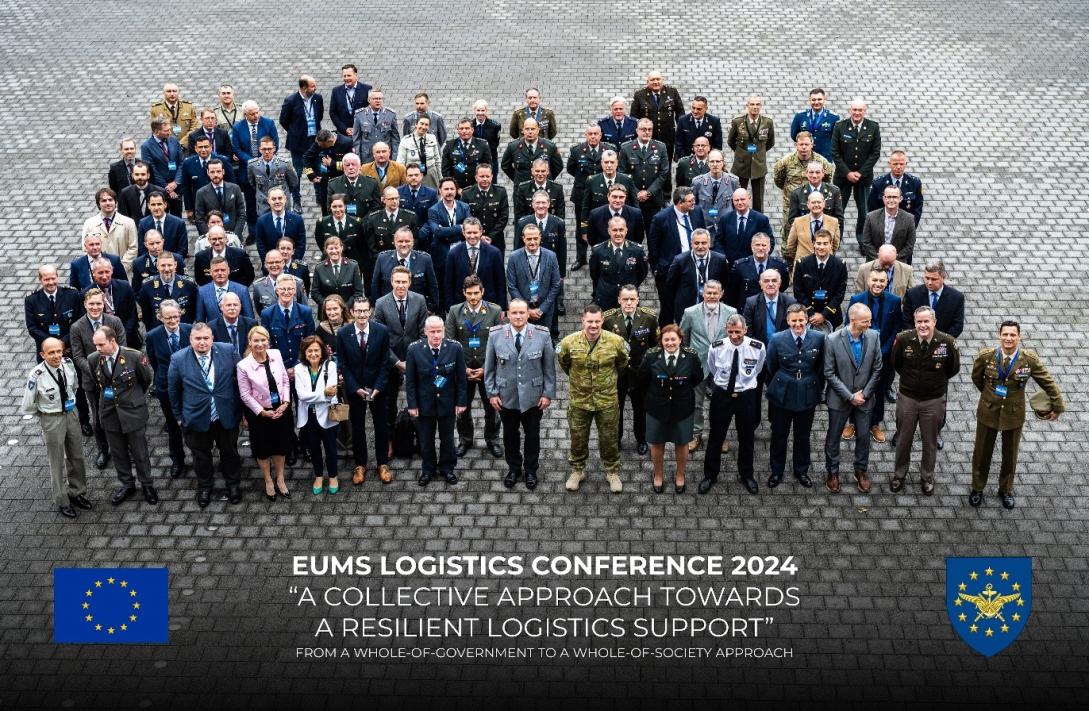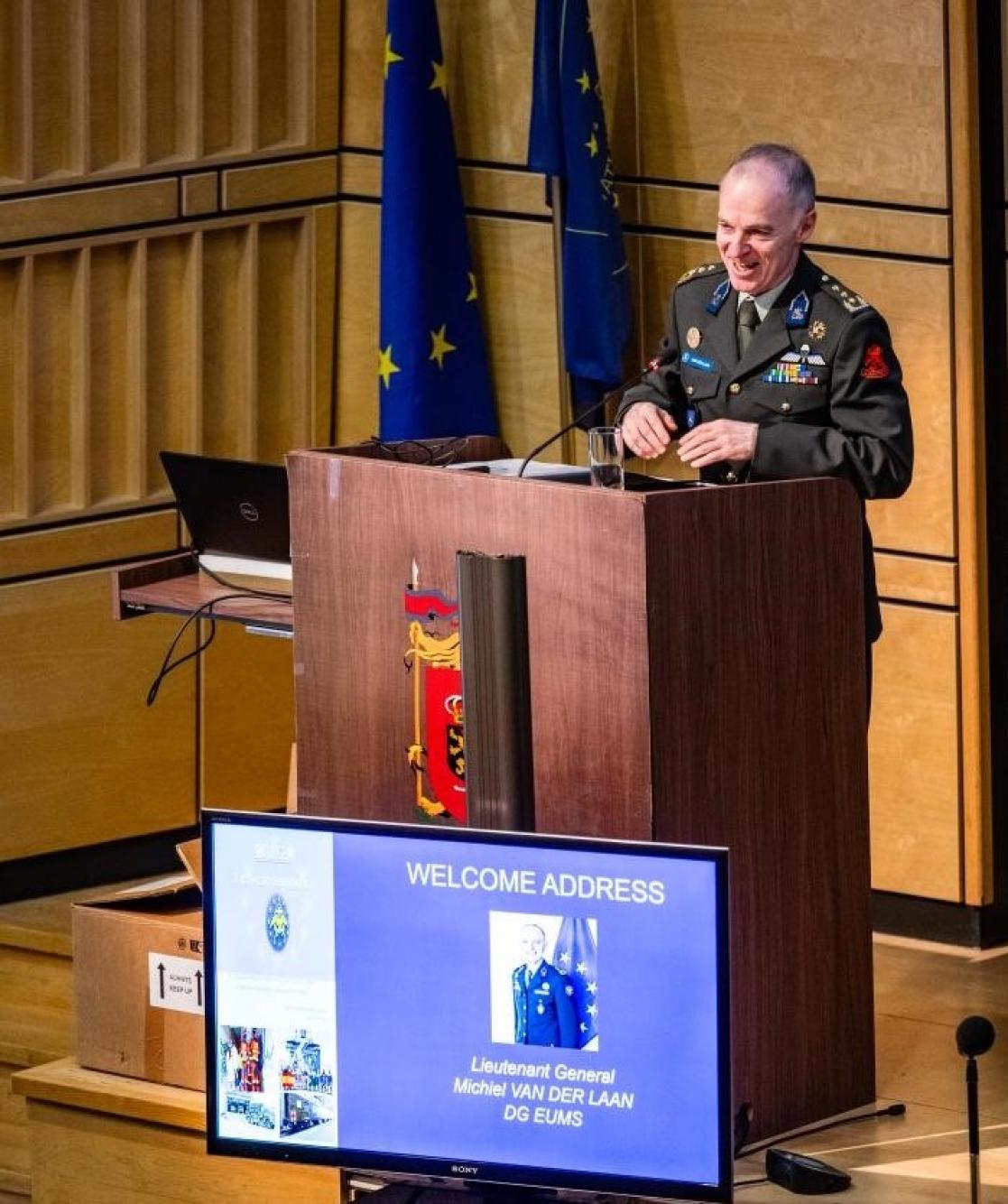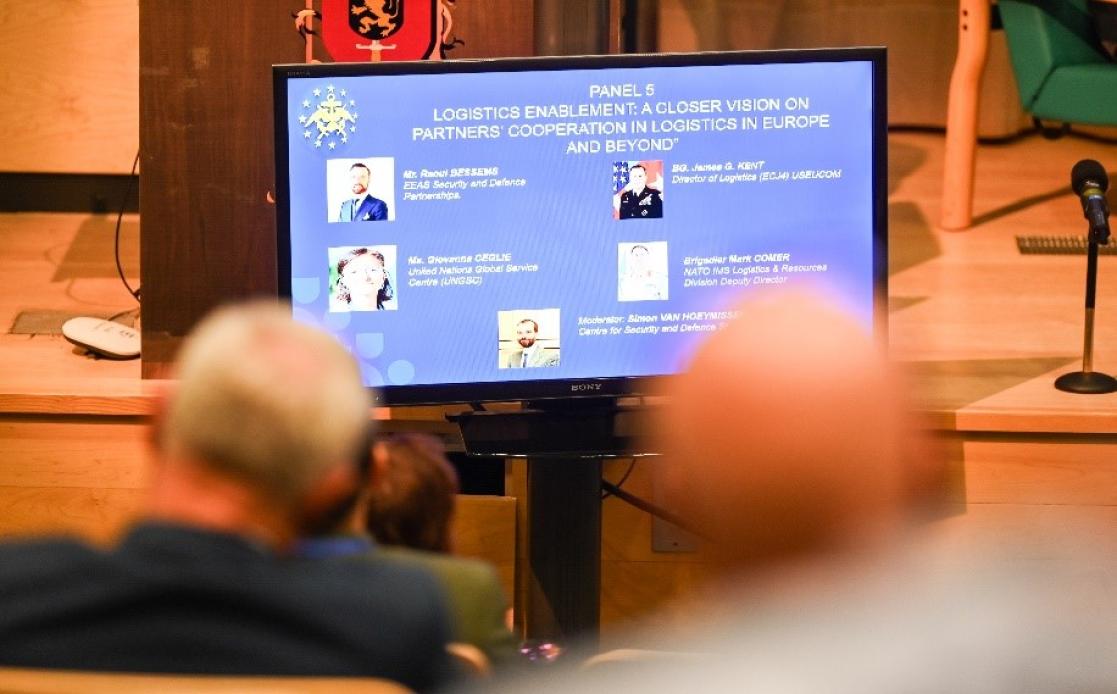EUMS Logistics Conference (EULOG24) - A collective approach towards a resilient logistics support

The Belgian Royal Military Academy and the Royal Museum of the Armed Forces and Military History offered the ideal venues to discuss today’s logistics challenges from a whole-of-government towards a whole-of-society approach.
Director General EU Military Staff, Lieutenant General Michiel VAN DER LAAN and Brigadier General Katrien D’HERT, Director Logistics at the EU Military Staff, both stressed the urgency of the current state of play and the challenges in movement and logistics, and the need to come to tangible results, as part of European Union’s preparedness and resilience.

EUMS
During five panel discussions, moderators, panellists and representatives from EU and NATO Member States, EU Operational Headquarters, EEAS, the EU Commission, EDA, international Partners such as the UN, NATO, EUROCORPS and USEUCOM, military multinational logistics organizations (MCCE, EATC, NSPA) and civilian enterprises (Ricardo Rail ltd, Spliethoff Group, Port of Antwerp-Bruges, Inchcape) offered different viewpoints and insights on today’s common logistics toolbox. At the same time reflections were made on how to become more resilient and redundant between the civil and the military world in our logistic efforts for the near future.
A broad scope of topics was covered, starting from the EU logistics enablers in a whole-of-society approach, followed by the lessons identified from recent EU Common Security and Defence Policy mission and operations, such as Operation ASPIDES and EUMAM Ukraine. In the backdrop of the current strategic environment the different dimensions on military mobility were examined more in detail for the sea and land domains, with special attention of the latter to the rail transport and the medical evacuation aspects. Additionally, following the RUBIKON exercise pilot case on critical maritime infrastructure protection, interesting feedback was provided as part of the increased attention for cross border hybrid threats, so completing the picture.
The discussions on logistic enablement in Europe, and beyond, with partners’ contributed to identify potential areas of logistics cooperation, and mutually reinforcing innovative solutions. Without any doubt, the intertwined relationship and dependence of today’s military logistics with civil, private and governmental actors and stakeholders implies above all a good understanding of the common dual-use requirements. This will allow to adapt or to create the right instruments and legal frameworks, and to foresee financing where required for the future.
At the end of the day a robust resilient logistic support system at the disposal of the EU Crisis Response Mechanism can only be based on the collective responsibility principle in a multi-domain environment. In this vein, in her closing remarks, the EUMS Director Logistics reflected on the generalization of the crisis-management culture in a broader civil-military logistics ecosystem - as set forth in the 21-22 March 24 Council Conclusions. This effort is also part of the road towards defence preparedness, reducing the current blurred in-between phase (peace versus war time) through adapted legislations and regulations. Since the EU pitch is always going to be the dual-use environment, only through a military-civilian strategic cooperation and coordination, the whole-of-society approach can be attained. This will require the military expertise to be integrated more in the civilian world, for them to become an integral part of the true security actor’s network instead of a patchwork. Since the proof is in eating the pudding, joint enablement exercises with Partners and civil governmental stakeholders should be used to the full extent to catalyse the above efforts and to come to tangible resilient proof results.
The conference proved to be successful in linking the civilian and military logistics partners and parties, and increasing the mutual understanding between stakeholders in today’s logistics ecosystems. The conference outcomes will further orient EUMS’ logistics actions to overcome common constraints towards the whole-of-society approach.

EUMS





